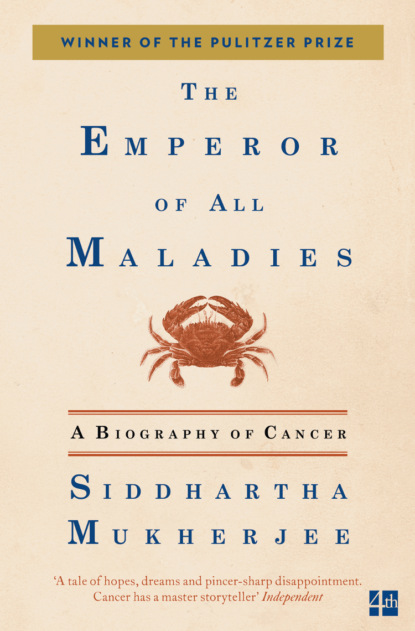По всем вопросам обращайтесь на: info@litportal.ru
(©) 2003-2024.
✖
The Emperor of All Maladies
Автор
Год написания книги
2018
Настройки чтения
Размер шрифта
Высота строк
Поля
—Voltaire
If we didn’t kill the tumor
(#litres_trial_promo), we killed the patient.
—William Moloney on the early days of chemotherapy
VAMP—high-dose, life-threatening, four-drug combination therapy for leukemia—might have made obvious sense to Skipper, Frei, and Freireich, but to many of their colleagues, it was a terrifying notion, an abomination. Freireich finally approached Zubrod with his idea: “I wanted to treat them with full doses of vincristine
(#litres_trial_promo) and amethopterin, combined with the 6-MP and prednisone.” The ands in the sentence were italicized to catch Zubrod’s attention.
Zubrod was stunned. “It is the dose that makes a poison,” runs the old adage in medicine: all medicines were poisons in one form or another merely diluted to an appropriate dose. But chemotherapy was poison even at the correct dose.* (#litres_trial_promo) A child with leukemia was already stretched to the brittle limits of survival, hanging on to life by a bare physiological thread. People at the NCI would often casually talk of chemotherapy as the “poison of the month.”
(#litres_trial_promo) If four poisons of the month were simultaneously pumped daily into a three- or six-year-old child, there was virtually no guarantee that he or she could survive even the first dose of this regimen, let alone survive week after week after week.
When Frei and Freireich presented their preliminary plan for VAMP at a national meeting on blood cancers, the audience balked. Farber, for one, favored giving one drug at a time
(#litres_trial_promo) and adding the second only after relapse and so forth, following the leukemia consortium’s slow but steady method of adding drugs carefully and sequentially. “Oh, boy,” Freireich recalled
(#litres_trial_promo), “it was a terrible, catastrophic showdown. We were laughed at and then called insane, incompetent, and cruel.” With limited patients and hundreds of drugs and combinations to try, every new leukemia trial had to wind its way through a complex approval process through the leukemia group. Frei and Freireich, it was felt, were making an unauthorized quantum leap. The group refused to sponsor VAMP—at least not until the many other trials had been completed.
But Frei wrangled a last-minute compromise: VAMP would be studied independently at the NCI, outside the purview of the ALGB. “The idea was preposterous,” Freireich recalled. “To run the trial, we would need to split with the ALGB, the very group that we had been so instrumental in founding.” Zubrod wasn’t pleased with the compromise: it was a break from his cherished “cooperative” model. Worse still, if VAMP failed, it would be a political nightmare for him. “If the children had died, we’d be accused of experimenting on people at this federal installation of the National Cancer Institute,” Freireich acknowledged. Everyone knew it was chancy territory. Embroiled in controversy, even if he had resolved it as best he could, Frei resigned as the chair of the ALGB. Years later, Freireich acknowledged the risks involved: “We could have killed all of those kids.”
The VAMP trial was finally launched in 1961. Almost instantly, it seemed like an abysmal mistake—precisely the sort of nightmare that Zubrod had been trying to avoid.
The first children to be treated “were already terribly, terribly ill,” Freireich recalled. “We started VAMP, and by the end of the week, many of them were infinitely worse than before. It was a disaster.” The four-drug chemo regimen raged through the body and wiped out all the normal cells. Some children slumped into near coma and were hooked to respirators. Freireich, desperate to save them, visited his patients obsessively in their hospital beds. “You can imagine the tension,”
(#litres_trial_promo) he wrote. “I could just hear people saying, ‘I told you so, this girl or boy is going to die.’ ” He hovered in the wards, pestering the staff with questions and suggestions. His paternal, possessive instincts were aroused: “These were my kids. I really tried to take care of them.”
Вы ознакомились с фрагментом книги.
Приобретайте полный текст книги у нашего партнера:
Приобретайте полный текст книги у нашего партнера:





